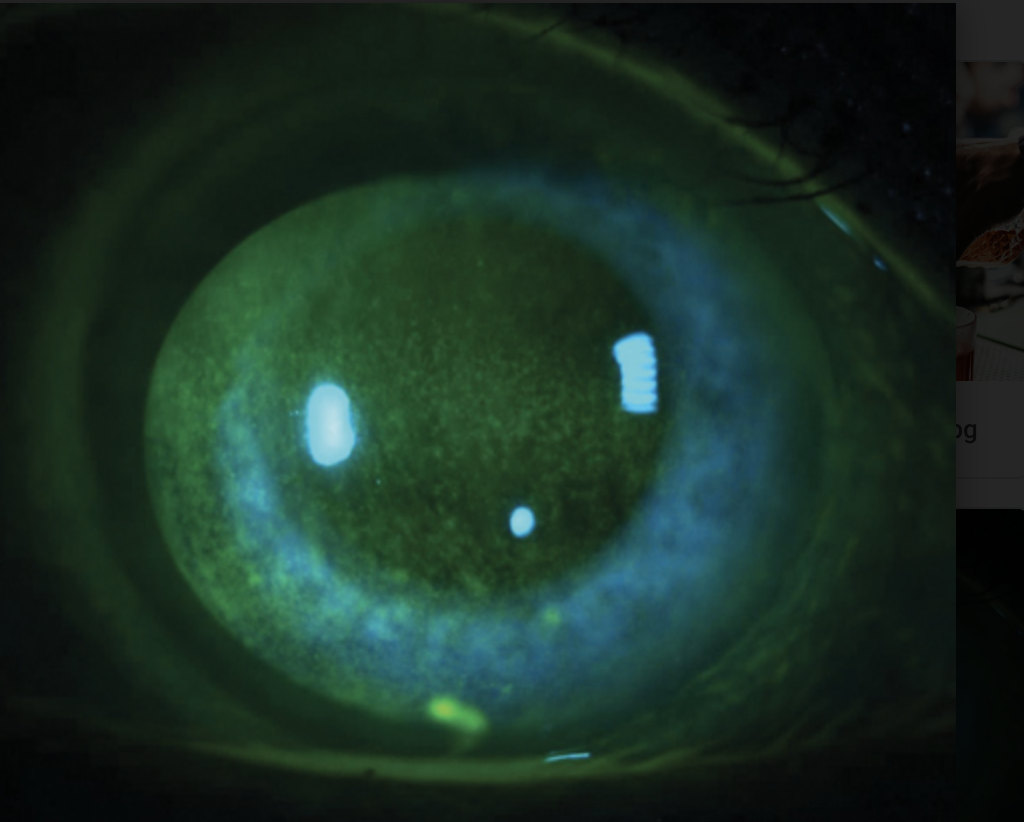 |
| Significant changes in the microbial composition of the ocular surface were observed in patients taking glaucoma medications. Photo: Jacob R. Lang, OD |
Preservatives in topical glaucoma medications have long been known to cause ocular surface inflammation, but researchers suggested in a study presented at the 2022 ARVO meeting in Denver that this might not be all preservatives do. They observed significant changes in the microbial composition of the ocular surfaces of patients using preserved glaucoma medications.
In the study, 17 patients (10 with unilateral glaucoma using preserved drops on just one eye and seven age-matched healthy controls with no history of ocular surface disease or eye drop use) had both eyes swabbed for V3-V4 16S rRNA sequencing. The researchers used air swabs as negative controls and compared the microbial diversity and composition of the swabs.
They found that samples from treated and untreated patient eyes had greater organism diversity and a distinct microbial composition compared with controls. Eyes treated with preserved glaucoma drops had various gram-negative bacteria (mainly Akkermansia), which the researchers wrote in their abstract was significantly different from the mainly gram-positive microbes found in the healthy control eyes.
“These compositional differences were associated with decreased tear film measures and distinct inferred protein synthesis pathways, suggesting a potential link between microbial alterations and ocular surface inflammation,” the investigators concluded in their abstract.
Original abstract content © Association for Research in Vision and Ophthalmology 2022.
Chang C, Somohano K, Zemsky C, et al. Topical glaucoma therapy is associated with alterations of the ocular surface microbiome. ARVO 2022 annual meeting. |


